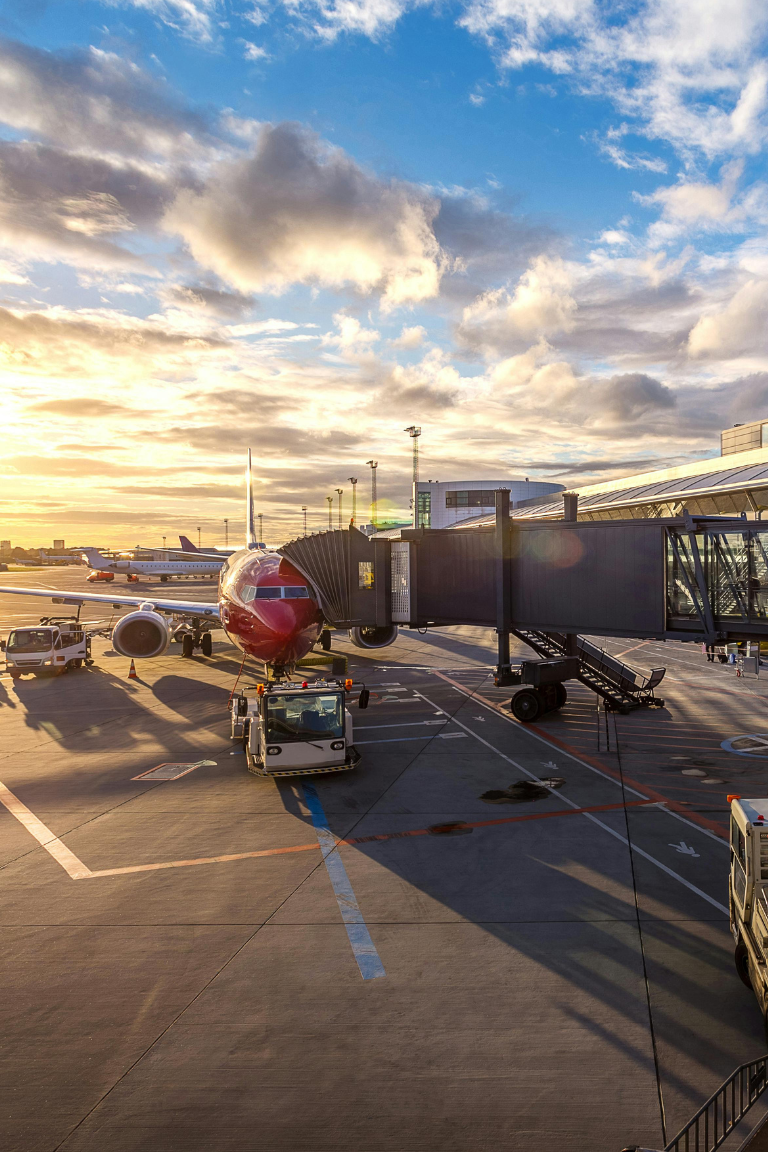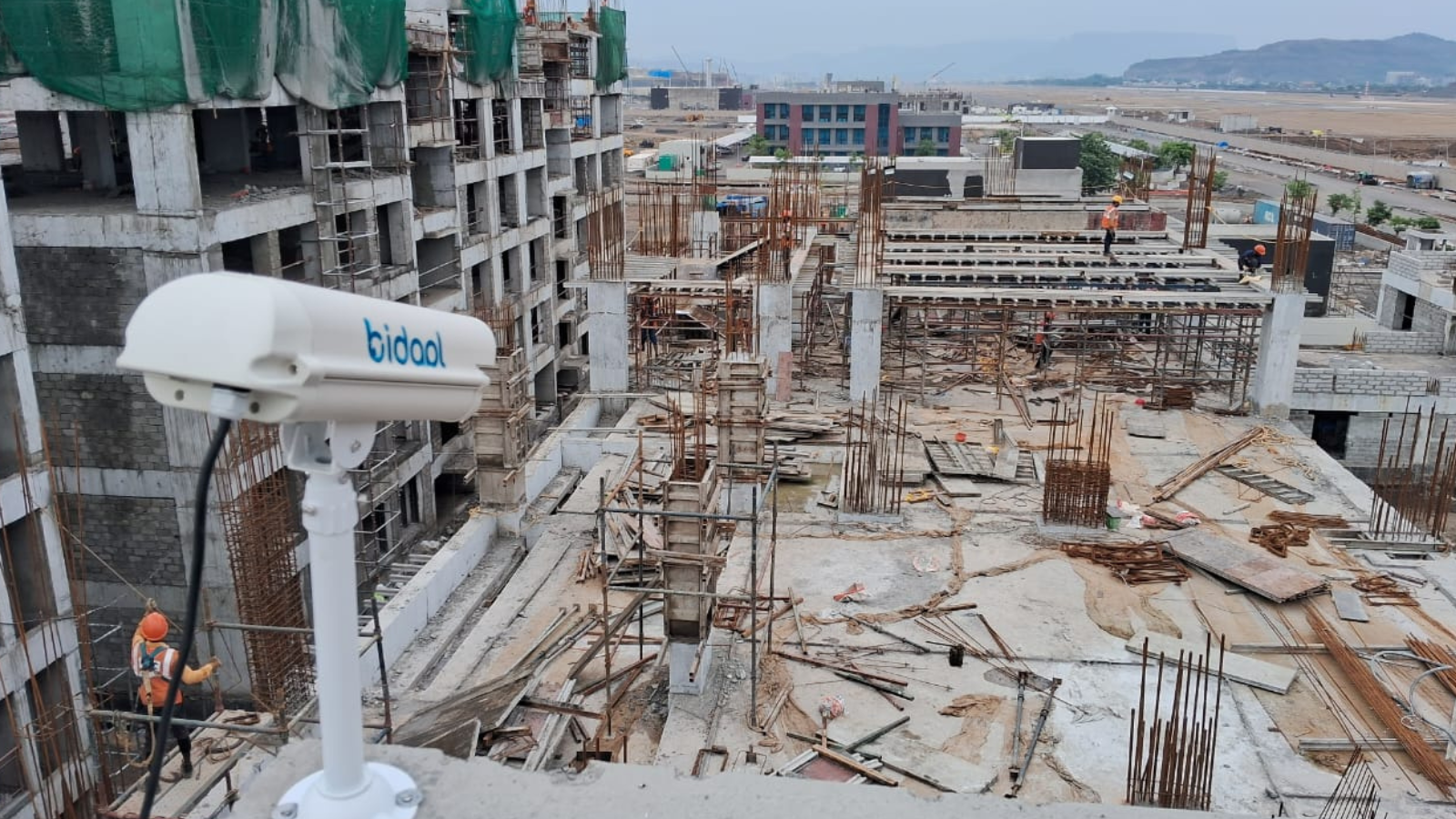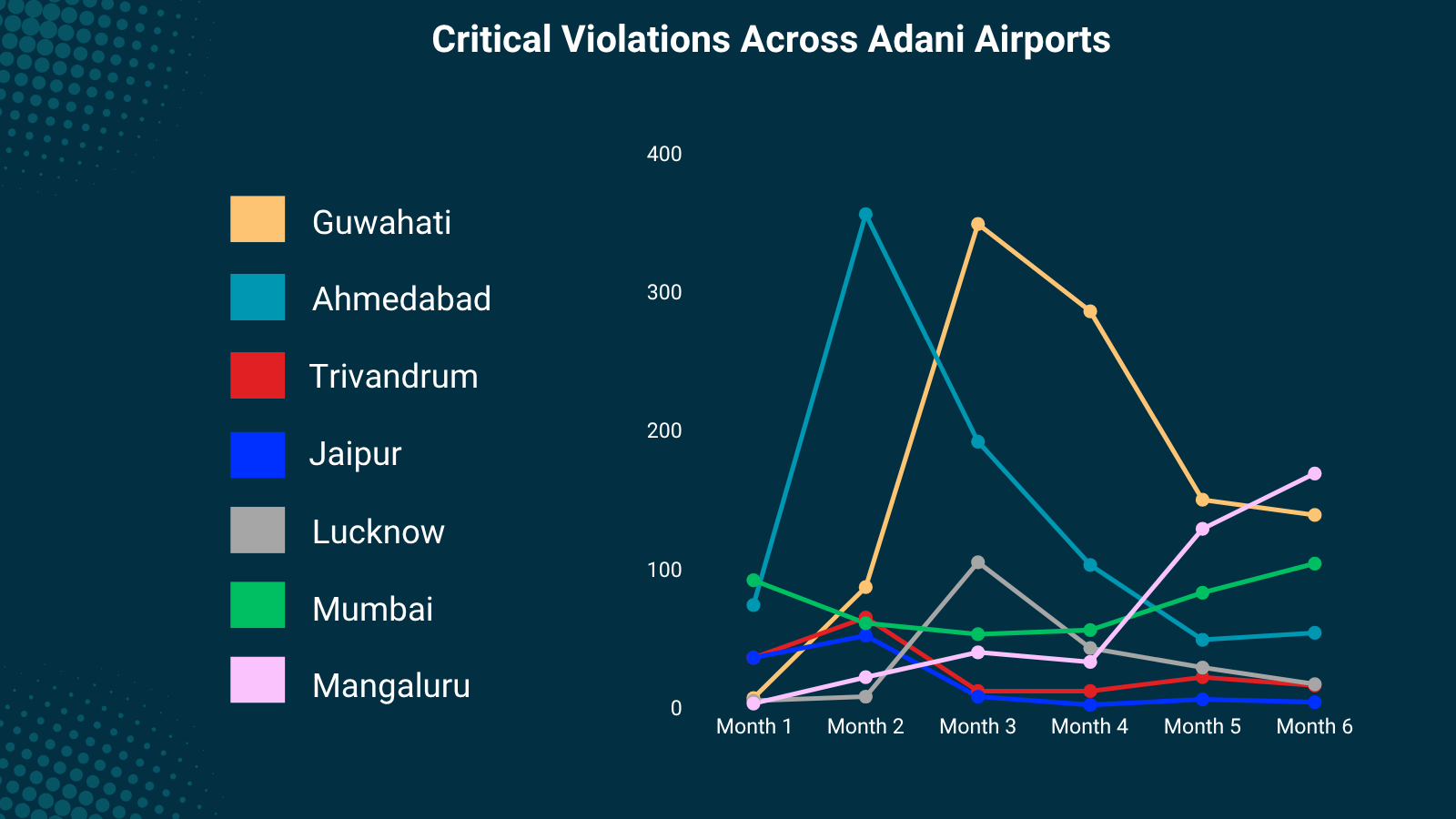Adani Airports achieve 65% reduction in critical violations over the past year
Companies worldwide trust Bidaal to enhance workplace safety and empower their workforce. Learn how our AI-driven solutions proactively protect employees and improve operational efficiency.

Identify Areas Of Risk With Scaling Workforce
In 2019, Adani Airport Holdings Limited (AAHL) assumed operational responsibility for seven major airports across India—Ahmedabad, Lucknow, Mangalore, Jaipur, Guwahati, Thiruvananthapuram, and Mumbai. In line with its strategic vision for nationwide aviation development, the company further expanded its portfolio with the planned development of its eighth airport in Navi Mumbai, which was commissioned in 2024.
This transition marked the beginning of a comprehensive initiative to modernize airport infrastructure, enhance connectivity, and elevate the overall passenger experience. These objectives necessitated the execution of extensive and complex construction and redevelopment projects at each of the airports.
However, the scale and intensity of these industrial-level undertakings introduced a range of operational challenges, particularly in maintaining adherence to safety protocols. During the expansion work across all seven airports, significant violations were observed concerning the use of Personal Protective Equipment (PPE), work-at-height practices, and mass gatherings. Such breaches not only contravened Adani’s Environmental, Health, and Safety (EHS) policies but also adversely impacted operational efficiency and project timelines, leading to economic slowdowns.
In industrial construction, where projects are of elevated complexity, the dual priorities of timely completion and the maintenance of safety standards are of utmost importance. The execution of intricate tasks—such as the operation of highly sophisticated machinery or the relocation of heavy materials within the worksite—further increases the risk of accidents. Additionally, there exists a general lack of general awareness among workers regarding safety protocols. This complacency often leads to hazardous incidents, which can result in severe consequences not only for the individuals involved but also for the employing organization.
Addressing these safety lapses became imperative for ensuring sustainable growth, safeguarding worker well-being, and maintaining the momentum of infrastructure development across the Adani-managed airport network.
"We on behalf of LIAL, would like to extend our sincere appreciation for providing the AI camera solution that has significantly enhanced our ability to monitor safety implementation at the workplace. The real time insights from the AI cameras, helps us to serve as a testament to reliability.
We value your innovative approach and the support you have provided throughout the implementation process."
Ravi VermaAssistant Manager-Safety, AAHL Lucknow
Identify Areas Of Risk With Scaling Workforce
To implement a robust and scalable safety monitoring framework, Adani Group partnered with Bidaal to not only monitor the rising number of safety violations but also to establish a systematic approach for addressing these recurring infringements.
The primary objective was to eliminate the conventional method of manual inspection across operational areas and instead introduce a digitally automated monitoring system. The focus of this initiative was to automate the initial three of the four key steps in Adani’s safety framework — Detect, Analyze, Report, Improve— thereby maximizing efficiency and outcomes.

Previously, AAHL employees relied on manual processes to uphold safety standards which posed risks such as the potential oversight of violations and significant loss of man-hours. To mitigate these issues, surveillance cameras were deployed across construction zones within the airport premises. These cameras were integrated with Bidaal’s AI Video Analytics solution, designed to streamline and enhance the monitoring process.
Following a detailed assessment of operational zones and a thorough definition of potential safety violations, the AI model was trained to accurately detect such hazards. Violations were tracked through an intuitive software platform that provided 24/7 monitoring capabilities. The system also empowered users to assign specific personnel for incident reporting, with options for real-time alerts or comprehensive daily/weekly/monthly reports offering an overarching view of safety compliance.
The solution was initially deployed at Adani’s Mangalore airport, where it delivered promising results and operational efficiencies. Following this successful pilot, the implementation was extended to all Adani-operated airports within a year. Since then, the solution has been continuously refined in alignment with client needs and has demonstrated significant, measurable improvements in safety monitoring and compliance.
80% Reduction In Incidents
While a low number of detected violations is generally desirable for any organization, the effectiveness of an AI-based monitoring system in its initial phase is best demonstrated by its ability to identify a higher volume of violations—many of which are often overlooked through manual inspections.
A particularly notable case was observed at Adani Guwahati Airport. Prior to deployment, the estimated number of monthly violations was approximately 300/month as extrapolated from manual practices. However, in the first month following the implementation of the AI system, over 3,000 violations were recorded. Although this initial surge was initially perceived as a concern by the Environment, Health, and Safety (EHS) team, it ultimately provided a valuable opportunity to take corrective action promptly and reinforce Adani’s commitment to maintaining a safe and compliant work environment, thereby ensuring continuity of operations.

Moreover, the completeness of the system was not just about the detection of violations and informing the designated personnel but providing the user with a systematic tracking of their resolution. The impact of this end-to-end functionality became evident within six months of deployment, as a significant decline in violation numbers was observed—highlighting both the system’s effectiveness and the proactive measures undertaken by the EHS team to enhance safety protocols.
The success at Adani Guwahati is not an isolated achievement; the effectiveness of the AI-based safety system has been consistently demonstrated across multiple Adani locations. A prime example is Adani Ahmedabad, which marked a significant milestone by celebrating 10 million work hours without any major accidents or fatalities—an accomplishment that underscores the positive impact of enhanced safety monitoring and proactive EHS practices.
While much of the discussion has centered around the collaboration between Adani and Bidaal in transforming safety monitoring within airport operations, the impact of this partnership extends well beyond the aviation sector. Adani's continued trust in Bidaal’s capabilities is evidenced by the expansion of the AI-driven safety system to other Adani Group/Sister Companies. This strategic deployment reflects a shared commitment to enhancing safety standards across diverse infrastructure verticals, with strong expectations of achieving similarly positive outcomes.
Let’s walk you through the platform

